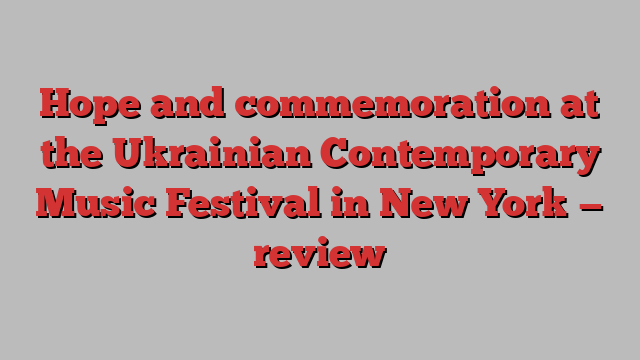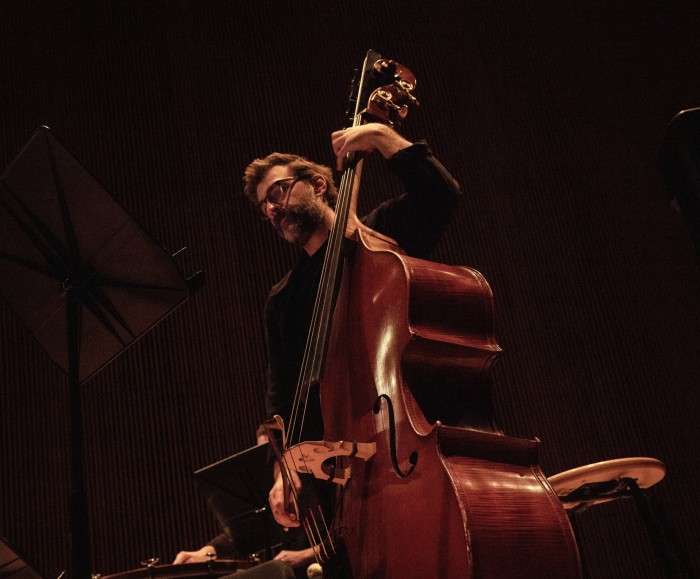
Unlock the Editor’s Digest for free
Roula Khalaf, Editor of the FT, selects her favourite stories in this weekly newsletter.
In 2022, following Russia’s full-scale invasion of Ukraine, there were several impromptu concerts in New York City of music by Ukraine’s leading contemporary composer Valentin Silvestrov, then exiled to the safety of Berlin. His deceptively simple, plangent music seems poised between epochal moments in history, and the war’s context added an intense mix of foreboding and hope.
Silvestrov formed part of the programme for the fifth Ukrainian Contemporary Music Festival, held over three nights at the DiMenna Center for Classical Music. The mood around the festival was avid for the music, the reality of the war present through naming Ukrainian musicians and artists who have been killed. The festival was poised between preserving relics of a shattered past and showing possible futures.
On Good Friday, the sole focus was on Ukrainian-American composer Virko Baley. He exemplified the festival’s “crossing borders” theme with a personal voice that was strongest in the opening Nocturnal No 5, In the Grove, a technically demanding and subtly complex piano piece played with agility and understanding by its dedicatee, Laura Spitzer. It had a series of quickly shifting phrases that seemed to move in independent directions. These gradually cycled and organised as a much larger form with a feeling of beauty and mystery as they came together. It sounded like Schumann sieved through Morton Feldman.
There was one Silvestrov piece on Saturday night’s programme, the song “Farewell, world”, setting a poem by Ukrainian national poet Taras Shevchenko. Sung with luminous gentleness by bass-baritone Hans Tashjian, with pianist Anna Keiserman, it was a moving statement of loss, endurance and defiance.

Not all the crossing borders worked. The Rhythm Method quartet followed with the middle section of Steve Reich’s Different Trains, in part inspired by the trains which transported Jewish people to concentration camps during the Holocaust. The performance lacked sharpness and suffered from a buzzy sound system and a disruptive audience member, while the music did not work separated from the larger piece. The argument felt heavy-handed in the face of more immediate tragedies, such as the Ukrainian lives disrupted and lost by the dedicatees of Fima Chupakhin’s elegant songs-without-words piano work, One Day They Will Be Dancing.
Mykhailo Chedryk’s world premiere Sonare, for double bass and ensemble, grew organically out of the sounds of Tristan Kasten-Krause’s sub ponticello and end-pin bowing. It featured timbres and gestures rather than notes, sounds groping towards the coherence of formal music, the inexpressible in search of a language. This complex process was gripping, and hearing ambiguity become direction was the most hopeful statement of the festival.
Last was Kaija Saariaho’s late song for soprano and violin, “Changing Light”, sung with poise by Jennifer Gliere, accompanied by violinist Leah Asher. The message was patience and indomitable hope.
★★★★☆
dimennacenter.org